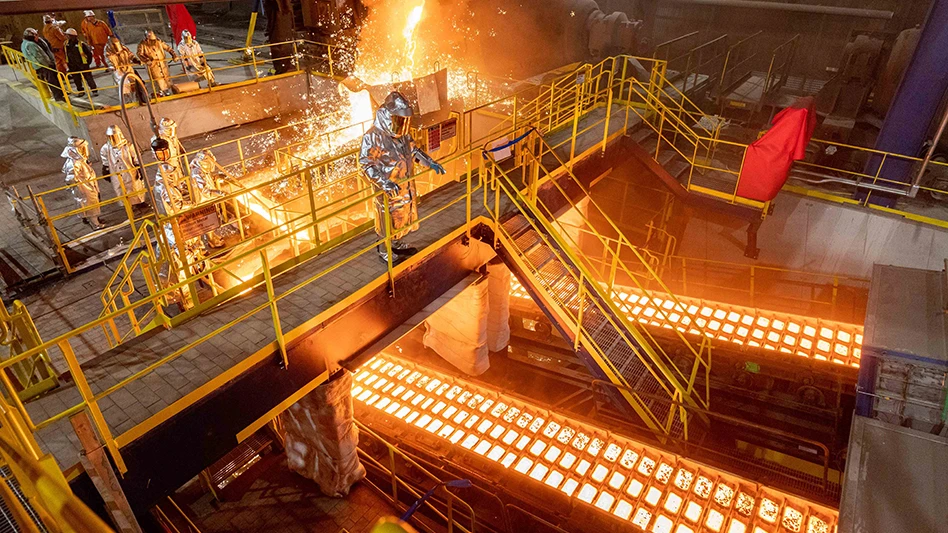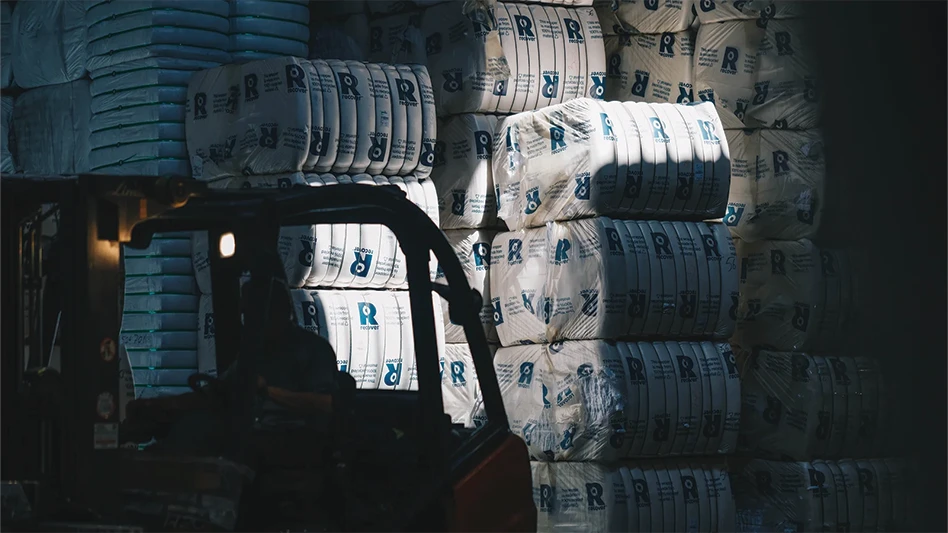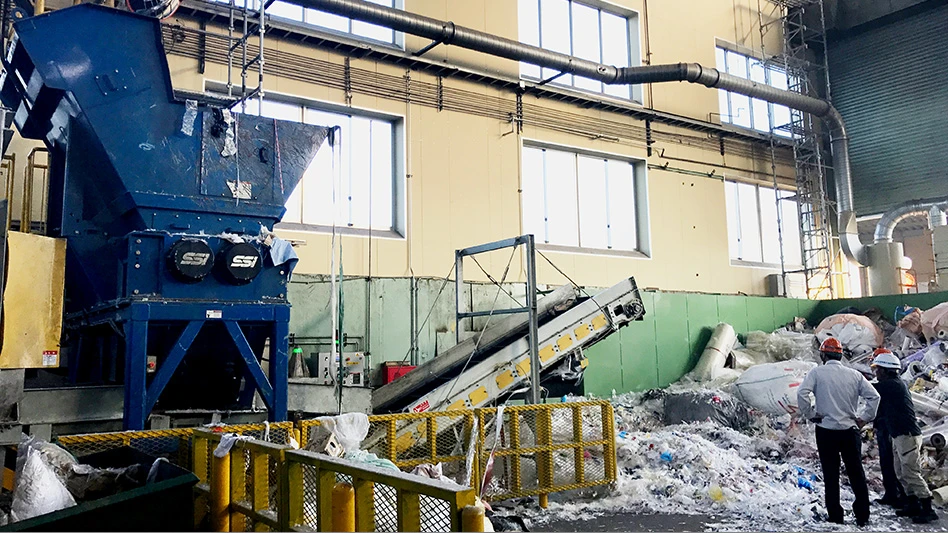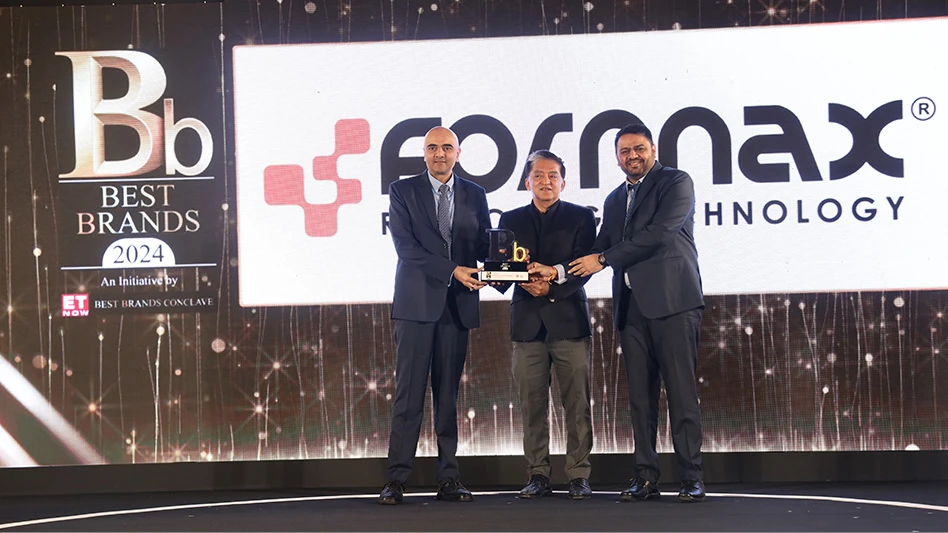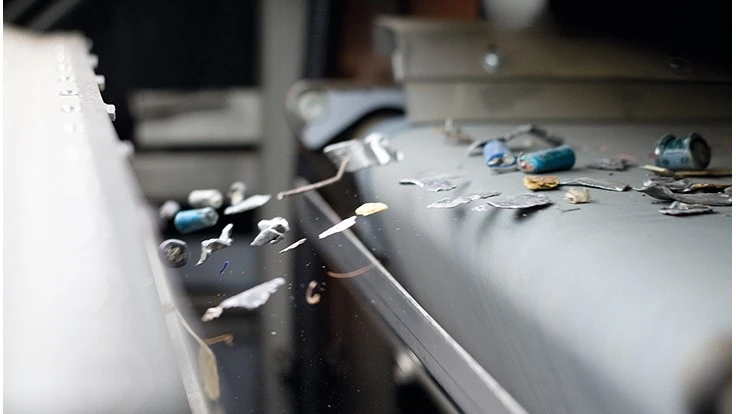
In recent decades, waste collection and scrap metal managers around the world have increasingly relied on China to import and process vast quantities of plastic, paper, metal and other recyclable materials.
So, the Chinese National Sword, which came into effect in February 2018 to ban imports of 24 types of recyclable materials and set a tougher standard for contamination levels in others, has been regarded by many as a “catastrophe” that will have a “devastating impact” on global recycling.
However, the China import ban also provides smart businesses with two main benefits and opportunities. First, exporters who can ensure the lowest contamination and highest purity levels by using advanced sensor-based sorting technology can continue trading accepted products with China and gain real competitive advantage – as well as attracting higher revenues from customers who value cleaner products.
Second, the squeeze on Chinese scrap imports is acting as a catalyst for other governments and recycling industries to explore alternative supply chains – and this extra investment provides commercial opportunities for domestic sorting and recycling businesses around the world.
Here, we set out what the Chinese National Sword is, how it can act as a catalyst for change in global waste management and how businesses can gain a competitive advantage.
What is the Chinese National Sword?
In its simplest form, the Chinese National Sword is the country’s latest and strictest regulation on imports of solid wastes as raw materials. The policy bans various plastic, paper and other materials, including plastics such as PET, PE, PVC and PS. It also sets a much tougher standard on the limit of contamination in plastic scrap, zorba and other metals allowed in a shipment – increasing from 90-to-95 percent purity to 99.5 percent.
In echoes of the 2013 Green Fence customs crackdown, the latest move is intended to improve China’s air quality, reduce pollution from “dirty or even hazardous wastes” and prevent what the Chinese government calls illegal waste smuggling. Chinese officials have said they plan to enforce these new regulations by scanning containers with X-ray machines and opening containers that can’t be scanned.
China consumes an estimated 55 percent of the world’s scrap paper and is the leading destination for other recyclable materials, so the restriction is already having a major impact on global waste management. Already the amount of plastic scrap imported into China has fallen from 3.5 million metric tons in 2017 to just 21,300 metric tons so far this year, according to China’s Ministry of Environmental Protection and the China Scrap Plastics Association.
A pure opportunity
As China reduces the acceptable limits for contamination in its scrap material imports from 5-to-10 percent to 0.5 percent, exporters with the lowest contamination and highest purity levels may find themselves in high demand.
The most effective way to ensure compliance is by using advanced sensor-based sorting technology, which supports businesses to optimize their sustainability and operational value. The most advanced machines operate at ultra-high frequency, ensuring precision identification of materials down to the accurate detection of the smallest particles.
Equipped with laser, electromagnetic and near-infrared (NIR) technology, sorting machines can analyze multiple material characteristics, such as color, composition, size and density – with non-usable materials being removed from the process using compressed air guns.
At the same time as removing contaminated material, highly effective sorting technology also enables businesses to recover valuable metal and plastic from non-recyclable materials, leading to optimized product yield.
Technological innovations are continuously improving operational efficiencies, with TOMRA’s latest laser object detection (LOD) technology helping to optimize yield in black plastic, glass and other items. LOD technology comes as an add-on to boost the sorting capability of existing machines, identifying objects that can’t be scanned by near-infrared (NIR) sensors such as black plastics (PP, PE, PET), glass and waste items – as well as getting peak performance, substantially less downtime and greater output from paper, zurik and zorba products.
So, while the regulation creates a real market disruption for some businesses, others wisely see it as an opportunity to optimize their sorting processes, establish themselves as a trusted supplier with China and gain market share.
National Sword as a catalyst for change
China’s new regulations also are having a positive impact by reinvigorating domestic recycling capacity in countries around the world. This in turn provides an opportunity for domestic sorting and recycling businesses to gain competitive advantages, with many collectors and brokers of recyclable materials looking to replace a major part of their downstream supply chain.
Popular destinations for scrap materials such as southeast Asia, South America and Central America are seeing an increase in demand from distressed exporters, as are businesses in Europe.
In Australia, the New South Wales (NSW) government’s response to the Chinese National Sword was to invest AU$66.9m (€41.8 million, or $48.7 million) in a support package to boost the domestic sorting, processing and recycling of discarded materials. Its announcement states that “while industry faces immediate pressures to find alternative markets for recycled materials, this is an opportunity to strengthen local markets and the NSW recycling industry”.
Similarly, in the United States, at an Institute of Scrap Recycling Industries (ISRI) event in St. Louis, many attendees said they “feel the market conditions are right to upgrade their plants to handle the abundance of scrap metal available in North America.”
Finally, in Europe, many collectors and brokers of recovered plastics and other materials had seen scrap shipments virtually stop movement into China by the end of 2017. Instead, managers are turning to domestic recycling opportunities in Europe, as well as working with buyers in Malaysia, Vietnam and Thailand.
Leading the resource revolution
With investment comes innovation. So, while the Chinese National Sword poses an immediate challenge to the global waste management and recycling industry, there is a bright future.
The promise behind the changes comes from the design and implementation of new breakthrough technologies, which will continue to ensure less material in landfills, less mining of primary resources and less environmental pollution.
In short, there is an opportunity for the global waste and metal management industry. By investing in sensor-based recycling sorting solutions, businesses can optimize purity, cut contamination and help lead the resource revolution.
(The author is senior vice president and head of TOMRA Sorting Recycling, a global provider of sensor-based recycling and sorting technology.)
Latest from Recycling Today
- Biden officially blocks Nippon Steel’s acquisition of US Steel
- Highland Sanitation awarded solid waste and recycling contract in Wanamingo, Minnesota
- Ecobat gathers support for California permit renewal
- RecyclX platform designed to provide materials transparency
- Turkish mills sampled wide scrap market in 2024
- GLE Scrap Metal acquires interest in Mallin Cos.
- 2024 marks strong year for Van Dyk
- Recycled metal portrayed as former dictator’s fiefdom

